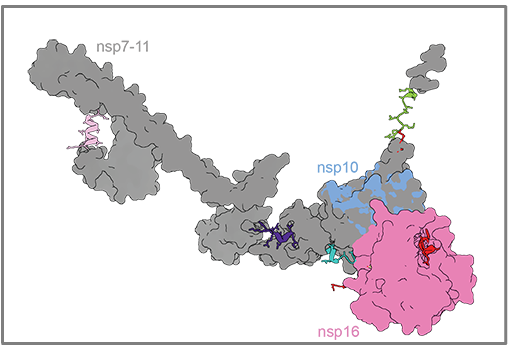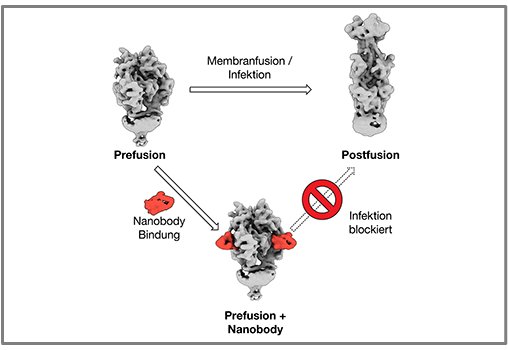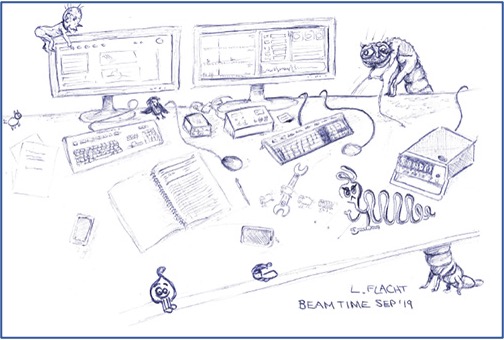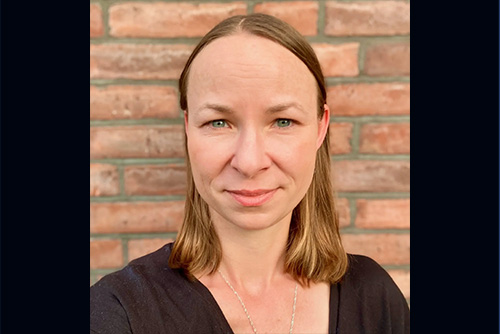Focus on the membrane
A novel mechanism provides important perspectives for immune control by antimicrobial peptides and was honored with the "Leibniz Drug of the Year 2022" award. The prize was awarded on May 5th at the Leibniz Drug Days 2022 at the Center for Structural Systems Biology (CSSB) in Hamburg. The prize committee honors Prof. Andra B. Schromm (Immunobiophysics), Dr. Laura Paulowski (National Reference Center for Mycobacteria) and Prof. Thomas Gutsmann (Biophysics) for their interdisciplinary research work.
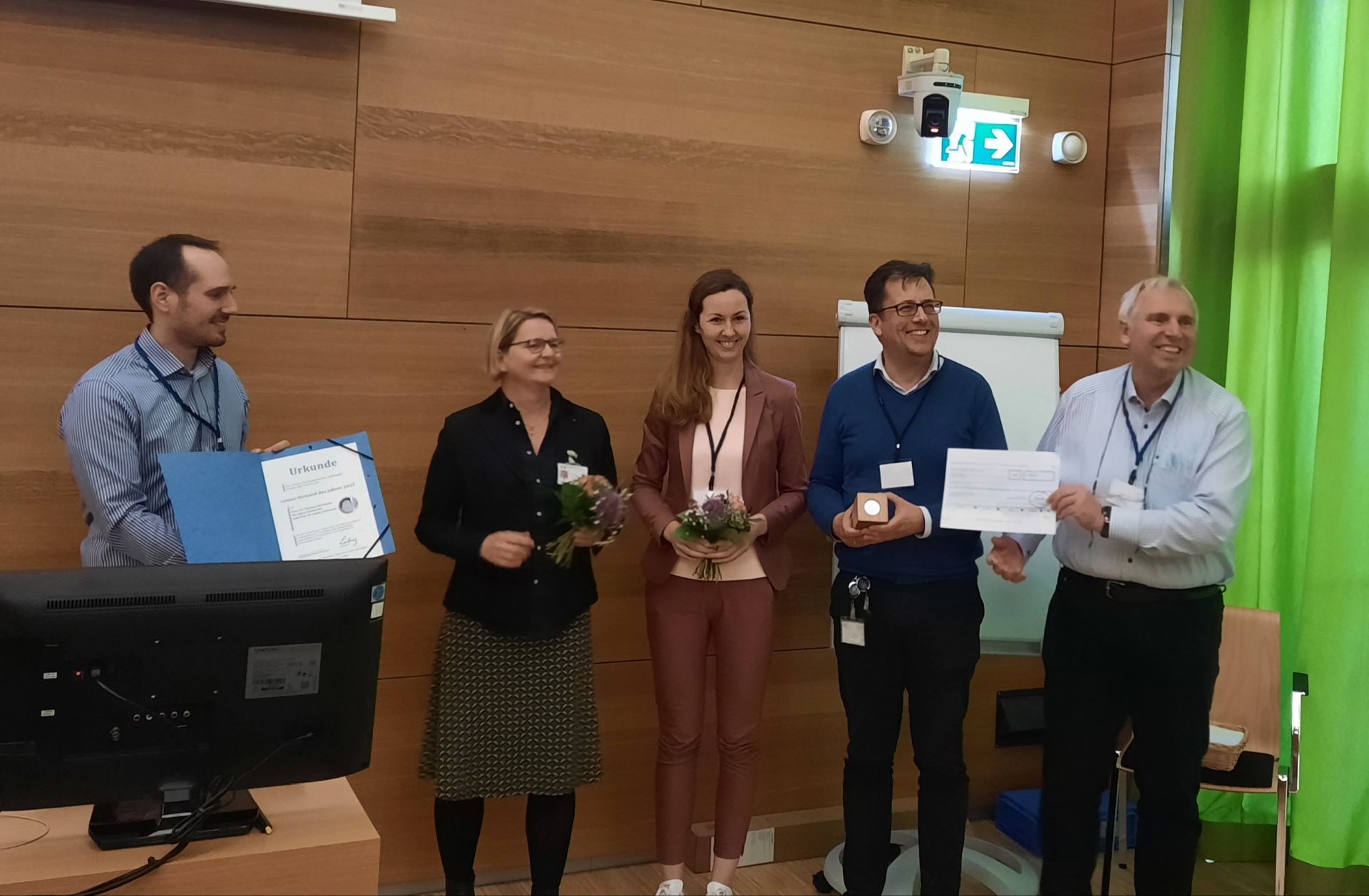
Prof. Dr. Pierre Stallforth (HKI), Prof. Andra Schromm (FZB), Dr. Laura Paulowski (FZB), Prof. Thomas Gutsmann (FZB) and Prof. Dr. Ludger Wessjohann (IPB) (l.t.r.) at yesterday's award ceremony at the CSSB, IMAGE: Simon Pennuttis
Antibiotic resistance is a global challenge. Antibiotics are increasingly losing their effectiveness - pathogens are becoming resistant. This poses a fundamental threat to the global healthcare system. The need for new agents and therapies is immense and unmet. During bacterial infections, membrane components of these pathogens are released. One such component is lipopolysaccharide (LPS), a so-called endotoxin, which causes a severe hyperreaction of the immune system. This hyperinflammation is the trigger of bacterial sepsis and frequently occurs in acute pneumonia and also in chronic lung diseases, such as COPD.
The body's immune system possesses antimicrobial peptides as a protective shield against infections. These "natural antibiotics" not only act against bacteria, but can also simultaneously render the endotoxins released in the process harmless and are therefore valuable prototypes for the identification of new active compounds. The research groups led by Prof. Andra B. Schromm (Immunobiophysics) and Prof. Thomas Gutsmann (Biophysics) at the Research Center Borstel, Leibniz Lung Center have now investigated immunological control by membrane-active antimicrobial peptides in more detail in a study. Dr. Laura Paulowski has completed her doctoral thesis on this topic across the disciplines. The results of her doctoral thesis have been incorporated into this study and have contributed significantly to its success.
By using high-resolution methods at the FZB, the German Electron Synchrotron (DESY), the Centre for Structural Systems Biology (CSSB) and the European Molecular Biology Laboratory (EMBL), the research team was able to show how two medically relevant peptides, cathelicidin LL-32 and polymyxin B, disarm bacterial endotoxins. This occurs through direct inactivation of the endotoxins by binding of the peptides. Most importantly, the studies also reveal a previously undescribed mechanism of peptide-mediated immune control that focuses on the host cell. By acting on the signaling regions of the immune cell membrane, the inflammatory response of the cells is specifically suppressed, a finding that now opens up new possibilities in terms of host-directed therapy.
For these research results, the scientists at the Research Center Borstel, Leibniz Lung Center, have now received the "Leibniz Drug of the Year 2022" award, worth 2,000 euros. This is the 7th time that the Leibniz Research Network "Bioactive Compounds and Biotechnology" has awarded this prize in recognition of important research activities in the field of bioactive compounds. The prize was awarded by Prof. Ludger Wessjohann of the Leibniz Institute of Plant Biochemistry and Prof. Dr. Pierre Stallforth of the Leibniz Institute for Natural Product Research and Infection Biology e.V. Hans Knöll Institute (HKI). This is the second time that the FZB has received this award, as Prof. Thomas Gutsmann and scientists from the Hans Knöll Institute Jena were honored with this award in 2017.
The implementation of the project idea of Prof. Schromm and Prof. Gutsmann, who are both members of the Cluster of Excellence "Inflammation at Interfaces" and its successor "Precision Medicine in Inflammation", was also made possible by funding in the Cluster of Excellence. The implementation of the project idea was made possible by project funding in the Cluster of Excellence "Inflammation at Interfaces" and its successor "Precision Medicine in Inflammation". International cooperation partners from Vienna, Graz and Pamplona were involved in the elucidation of the multi-layered mode of action of the peptides, from molecular processes to effects on human immune cells and animal models. The results obtained significantly improve our understanding of how peptide antibiotics can regulate inflammation and will be important for their development and therapeutic use.
Publication:
Schromm AB, Paulowski L, Kaconis Y, Kopp F, Koistinen M, Donoghue A, Keese S, Nehls C, Wernecke J, Garidel P, Sevcsik E, Lohner K, Sanchez-Gomez S, Martinez-de-Tejada G, Brandenburg K, Brameshuber M, Schütz GJ, Andrä J, Gutsmann T. Cathelicidin and PMB neutralize endotoxin by multifactorial mechanisms including LPS interaction and targeting of host cell membranes. Proc Natl Acad Sci USA. 2021 Jul 6;118(27):
https://doi.org/10.1073/pnas.2101721118
Original News Story (in German):
